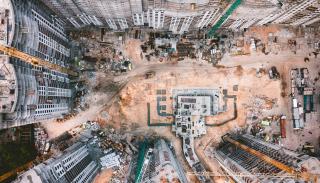
Breadcrumbs navigation
Infrastructure and the integral state: Internal Relations, processes of state formation, and Gramscian state theory
In this short summary video, author Daniel McCarthy goes through the key arguments from his new Review of International Studies (RIS) article - 'Infrastructure and the integral state: Internal Relations, processes of state formation, and Gramscian state theory'.
Want to know more? You can read the full article at DOI: https://doi.org/10.1017/S0260210523000414
This particular article is open access, however BISA members receive access to all articles in RIS (and our other journal European Journal of International Security) as a benefit of membership. To gain access, log in to your BISA account and scroll down to the 'Membership benefits' section. If you're not yet a member join today.
Abstract
Infrastructures are central to processes of state formation. The revival of materialism in International Relations has made an important contribution to our understanding of states through careful analysis of the politics of infrastructure and state building. Yet, to date, engagement with the state-theoretical tradition associated with the work of Antonio Gramsci, Nicos Poulantzas, and Bob Jessop has been absent. Through comparison with the external-relational ontology of Bruno Latour and actor-network theory (ANT), this article argues that state theory and its internal-relational ontology avoids reifying the state while providing an analysis of infrastructure and state formation sensitive to the historical reproduction of social orders over time. Developing Gramsci’s concept of the ‘integral state’, it emphasises the necessary interpenetration between civil society, the state apparatus, and the creation of infrastructure. These conceptual arguments are illustrated through an analysis of the United States’ development of nuclear infrastructures during the early Cold War period, in the internal relations between infrastructure and the integral state are explored through Civil Defense Education programmes. Clarifying the internal relations of past, present, and potential future forms of socio-technical order is an important task for rethinking the politics of technological design in International Relations.
Photo by Ivan Bandura on Unsplash